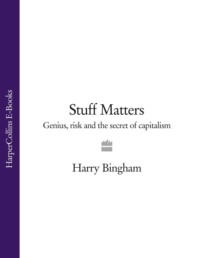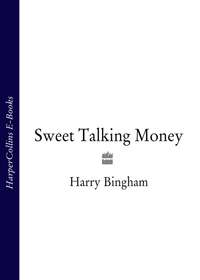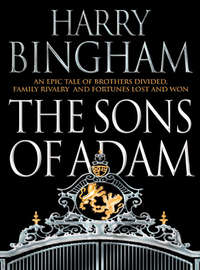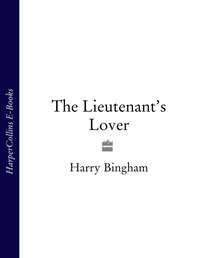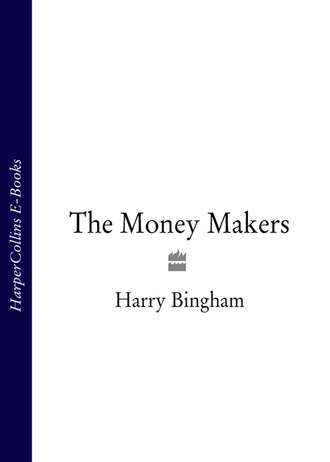
Полная версия
The Money Makers
He grabbed pen and paper, and wrote in capitals: ‘DEAR MR HANBURY, I AM VERY SORRY THAT YOU ARE SUCH A POMPOUS DICKHEAD. YOURS MOST SINCERELY, ZACK GRADLEY.’
Leaving the letter on Hanbury’s desk and shaking with anger, Zack sped from the room.
He left the bank in a foul mood. The row seemed pretty much fatal. If Hanbury carried out his threat to prevent him from seeing clients – to move him to the so-called back office – then Zack’s career would be killed stone dead. At first the gap in pay was small, the difference in responsibility hardly noticeable. But as time moved on, and the front office staff made it to associate director and then just director, their peers in the back office were wondering if they would ever make it beyond manager. A well-regarded thirty-year-old in the front office would be deeply upset if his end-of-year bonus was less than his already generous annual salary. His back office colleague took home a thousand pounds extra at Christmas and was grateful.
Zack left the building, eyes on the ground, collar raised against a thin December sleet, and stepped blindly out on to the zebra crossing leading to Bank tube station. A silver-green Jaguar, which had been driving too fast along the little street, squealed to a halt, skidding in the wet.
‘Screw you, you goddamn idiot. Look where you’re going.’ A distinguished-looking man with swept-back silver hair stuck his head out of the car window, the better to yell at Zack.
‘Screw you yourself, you geriatric shit-for-brains,’ yelled Zack, pleased to have an opportunity to vent his feelings.
‘Next time I won’t apply the brakes, you jerk.’
The man in the car was really shouting. His silver hair had come away from his head and shook like an angry mane. His accent was mid-Atlantic. Zack couldn’t tell if he was a Brit who had just come back from a long stay in the States, or a Yank who’d been in London too long. Either way, he looked like a viscount and swore like a trooper. Zack couldn’t help liking him. Zack yelled something obscene and stomped off.
He felt better for the row. Sod Hanbury. Zack would never apologise. Besides, he’d had a better idea.
3
David Ballard slowed his black BMW. Meeting a herd of sheep on the road up to Sawley Bridge, he had been forced to squeeze up on to a muddy verge, and one side of the car was spattered with heavy clay. It was a freezing afternoon, and by the time Ballard got home, the mud would be frozen solid. The car took a bigger bite out of his salary than he could justify, but he drove twenty-five thousand miles a year visiting clients, and the BMW gave pleasure with every one. He’d wash the paintwork down that evening.
Ballard drove slowly into the factory yard. Armed with ladders and paintpots, a couple of workmen, swearing at the cold, were getting ready to paint over the sign above the gates. Ballard was angry. Very angry.
He brought the car to a stop in the yard, next to the only other vehicle, a Transit van marked ‘Gissings Modern Furniture’. They’d be painting over that next, thought Ballard and marched angrily upstairs to George’s office.
George was at his desk, immersed in paperwork.
‘Hello, there,’ he said on seeing his visitor. ‘You should have let me know you were coming and I’d have got that five hundred grand ready. As it is, you’ll need to wait a little longer.’
Ballard was in no mood for jokes.
‘What the bloody hell is this I hear about you changing the name of the company?’
George was taken aback. Ballard was a shrewd but genial man, with twinkling eyes and a chuckle never far from his lips. He usually looked and acted like everyone’s favourite uncle. Not now. George responded coldly.
‘I don’t see what that’s got to do with you, as long as we comply with the terms of our loan.’
‘Don’t give me that shit. Is it true or isn’t it?’
‘For your information, yes, it is true.’
Ballard was seething. The red of his face contrasted oddly with the iron grey of his hair. His voice was furious, but controlled.
‘I saw Tom Gissing last night at the Rotary Christmas shindig. He told me you were changing the company’s name. It was the only thing that still mattered to him and you knew it. I honestly think he wouldn’t have minded the insulting way you bought the company, if you had brought it back to life with his name on it. In fact, he’d have been the first to thank you. As it was, he spent the whole damn evening crying on my shoulder. I called him this morning to check he was OK. No answer. I went round to see him and found him dead. Heart attack.’ Ballard paused, before delivering the final accusation. ‘That attack was your fault and God damn you for it.’
White-faced, George rose, went to a filing cabinet and drew out a piece of paper. He tossed it across the table to Ballard.
‘Here’s our application to change the company name. We’re changing the name from The Gissings Modern Furniture Company (Limited) to Gissings Furniture Limited. The original name is hopelessly out-of date, but I’ve never even dreamt of getting rid of the founder’s name. Nor will I now he’s dead.’
‘And what about the sign above the gates? That just says Gissings Furniture as it is.’
George shook his head.
‘I cut everybody’s wages by fifteen percent and said if anyone gave up more than that, I’d write their names in gold up above the gates. My secretary gave up thirty percent, so her name’s going up, just like I said. The Gissings Furniture bit is staying put.’
Ballard breathed out heavily and stroked his moustache with his hand. His face changed back from red to pink.
‘I’m sorry,’ he said. ‘I shouldn’t have accused you until I knew the facts. I take it back and I apologise.’
He extended a hand, which George accepted. ‘Don’t worry about it. I don’t blame you for being upset. I’m sorry to hear about Tom Gissing. I still hope to make him proud.’
‘Yes. I hope you do too. I do apologise, George. It was hasty of me.’
‘Yeah, well, I suppose I am partly to blame,’ said George. ‘I’ve been playing my cards fairly close to my chest here, so it’s only natural that rumours get started. Fact is, I’d like to get more people involved with waking up this corpse, because it’s more than one man can do by himself. The trouble is, I don’t seem to have anyone’s trust. It’s like pulling teeth all day long and I honestly don’t know what’s the matter.’
‘Bit of advice to you, George,’ said Ballard, winking. ‘Never tell your bank manager when you’re having a hard time. He might get scared and call in his loan. But you’re alright. I assume you’ll be getting your hands on your dad’s cash any day now. Good job, given that your loan extension runs out in less than a month.’
Ballard’s face had changed and George could no longer read his expression. There was something odd about it. George didn’t spend time wondering. He’d felt bad about deceiving Ballard and now seemed as good a time as any to come clean.
‘David, there’s something I need to tell you.’
‘Not bad news, I hope.’ Ballard’s face was secretive, laughing.
‘Well … it’s not good.’
‘Don’t mind what it is, so long as you pay the loan off in a month. That’s what we agreed, isn’t it?’
‘Yes that’s what we agreed –’
‘Well, that’s OK then.’
‘David, I’m not getting the money. The will … it’s a long story. But there’s no money.’
‘No money?’
‘Not a penny piece. I suppose you’ll have to close us down, will you?’
Ballard’s expression was emerging into the open now. He was chuckling.
‘Don’t worry. If there’s a delay, just get me a letter from the executors.’
‘I can’t … what’s funny? This isn’t bloody funny.’
‘D’you know who your dad’s executors are?’
‘The solicitor, Earle, is one of them, I think. I don’t know about the others.’
‘You think your dad might have thought of his oldest friend in the banking industry perhaps?’
Ballard was laughing at George, as George slowly put two and two together.
‘You’re an executor? You knew I didn’t have any money? Then why did you let me buy the company? Why didn’t you put it into receivership as you’d planned?’
‘Two reasons. First one is, I got thirty-six grand out of you.’
‘And the second?’
‘Second, I figured that Gissings was so far gone, it’d take a genius to save it. Your dad would have saved it.’ Ballard shrugged. It was the bank’s money, after all, not his. ‘I thought I’d take a chance on you.’
George was stunned, stunned and flattered. He slowly worked Ballard’s logic through to its conclusion.
‘So you won’t close us down when we can’t pay you?’
Ballard shrugged. Once again, the banker had taken over from the genial uncle.
‘I may close you down or I may not. It depends on how the business is going and which way I expect to get the most money back. But so far, George, you’re doing OK.’
4
Nine o’clock came and went and there was no sign of Zack. Hanbury and the two men from personnel looked at their watches and tutted.
Hanbury sat in the corner making incessant phone calls. The two personnel people chatted and fiddled with two pieces of paper which lay in front of them. One was the sheet of A4 on which Zack had written his message of ‘apology’ to Hanbury the night before. The other was a letter, which began: ‘Dear Zachary, we regret to inform you that your employment with Coburg’s Bank plc has been terminated with immediate effect.’ The letter was not signed.
Finally, forty minutes late, Zack arrived. He hadn’t shaved. It looked like he hadn’t slept, and he certainly hadn’t changed his clothes or showered. He smelled of alcohol. Hanbury, experienced in these things, guessed it was champagne. The older of the two men from personnel waved Zack to a chair.
‘Now, Zack, we’ve had a long talk with Piers here, and heard his version of events yesterday. We also have – er – a document you wrote last night. Now, we want to be reasonable about this …’
‘Well, I’m sure Piers and I agree on what happened,’ said Zack. ‘He screwed up a major deal with an important client and refused to listen when I came up with a way to rescue it. I assume he’s come to apologise.’
The two men from personnel looked at each other. Hanbury stared into space. He was going to enjoy this. The man from personnel tried again.
‘Now, Zack, be sensible. We haven’t made any final decisions about your future, and if you behave sensibly now, I’m sure we can find an area suited to your talents.’
‘Uh-huh. What did you have in mind? The catering department? Or was it the loo-cleaning team?’
The man from personnel pushed the unsigned redundancy letter across the desk.
‘This isn’t effective until it’s signed. You are at an early stage in your career and you don’t want to blow it all up now. A full and frank apology will give you a second chance that you’re lucky to have. I doubt whether you’re cut out for a front office job, but if you are, we’ll give you the chance to prove it. We need somebody to beef up the settlements desk and somebody with your abilities could do very well there. I must warn you though, your last chance is about to expire.’
Hanbury was loving this. The way he saw it, Zack had no choice but to take the offer. He’d urged personnel to make the offer, because he thought Zack’s humiliation would be more complete that way, locked up in a dead-end job without prospects. And if Zack stayed with Coburg’s, Hanbury could keep an eye on things. He’d make sure Zack never escaped to the front office, make sure Zack was always the last to be promoted, the last to get a bonus.
Zack had been right. Hanbury was not the cooling off type. He planned to imprison Zack for the rest of his working life, and he, Piers Hanbury, would relish every second.
Zack quickly scanned the letter. Immediate termination. Six months’ salary tax free. The services of an outplacement agency for up to twelve months. It was a good package. Coburg’s hired and fired as much as anyone else these days, but they still aimed to be decent about it. Zack paused for a long while, then turned to look at Hanbury. Hanbury looked straight into the younger man’s eyes and gloated openly.
‘I withdraw the words I wrote about you yesterday,’ began Zack.
‘Quite right,’ Hanbury smirked. ‘Settlements will suit you to a T. I’m sure you’ll enjoy the challenge.’
Without altering his expression, Zack continued. ‘On second thoughts, I’m not remotely sorry that you’re a pompous dickhead. You’re such an ugly sod that nothing else would really suit you.’
There was silence round the room. Hanbury was visibly astounded. The man from personnel laboriously withdrew an antique fountain pen and signed the redundancy letter. He shook it dry and slipped it across to Zack.
‘You are a very foolish young man. You will live to regret this.’
Zack grabbed the letter.
‘This is binding, right? Irrevocable?’
‘That’s right.’
‘Six months’ salary, tax free, no questions asked?’ The man from personnel nodded.
‘Good. Then you won’t be needing this. Merry Christmas.’
So saying, Zack took a sheet of paper from his pocket. He tore it in two, down the fold. He dropped both halves on the table and walked out of the room, without so much as glancing back.
Piers Hanbury put the two torn pieces of paper together. It was a letter from Zack to personnel. The text read simply:
As I have just been offered a superior job in a superior bank on a superior salary and with a significant signing bonus, I feel obliged to tender my resignation with immediate effect. For the record, I have not enjoyed working with Coburg’s. I do not respect its leadership. And I shall look forward to competing vigorously and successfully against it in years to come.
The letter was not signed. Piers Hanbury read it through slowly, then walked out of the room without a word. The two men from personnel read it through, too. They read it a second time, then the older man picked up the two pieces of paper, walked over to the dustbin and dropped them in. Really! Sometimes he felt he no longer understood the City these days.
5
It was a vile December morning. Cloud wrapped the village and the factory with it. Everything was clammy and cold. The gunge covering the factory yard was frozen with a sort of oily crust. From the moors, a north wind whipped down and snuck its way through Gissings’ decaying windows. It was a grim and depressing place to work. A grim and depressing way to earn a living, especially if you didn’t draw a salary and your current account was written in shrill red capitals.
George started work early, and punctually at eight thirty loud footsteps down the corridor alerted him to Val’s return. She marched in, dressed in the kind of tweed they wrap horses in. Square and crudely cut, her suit brought out her shape to perfection, thought George unkindly. The contrast between her and Kiki was so extreme, George could hardly help comparing them mentally every time he saw Val or thought of Kiki. Nowadays, both happened often.
‘Are you taking the piss?’ she asked George directly. She’d seen her name above the gate, then.
‘No,’ said George. ‘Anyone with your degree of loyalty to this company deserves recognition. If this company had any cash, I’d happily give you some of it. But since I can’t do that, I’ll do what else I can.’
‘I don’t want your pathetic little gifts,’ spat Val. ‘Anything I do isn’t for your benefit and it certainly isn’t so that I can win gold stars like some schoolchild.’
‘I know, Val. I don’t want to fight. If you ask me to, I’ll have them paint over the sign again right away. I just wanted to keep my promise first. But there’s something more important. I don’t know whether you’ve heard, but you ought to know. Tom Gissing died of a heart attack the night before last. He died quietly, it seems. I’m very sorry.’
George wasn’t prepared for the reaction he got to this news. Val’s normally strong features collapsed. She sat down on George’s desk, knocking papers to the floor, and wept, her deep-set eyes flooding her wonky face. George offered her a handkerchief, which she took.
After a while, she stood up. She struggled to compose herself, but George interrupted her. ‘Don’t worry about today, Val. Do whatever you need to do. Take time off. Come back when you’re ready. Just let me know when to expect you.’
‘Probably never,’ she responded distantly. ‘There’s no reason for me to stay here on a stupid salary working to save a three-quarters dead company, if Tom Gissing isn’t even around to appreciate the results.’
‘How can you say that? What about all the workers here who rely on the place for work? What about their families? What about the company itself?’ George was genuinely appalled. Christ, if even Val Bartlett was deserting him, he hadn’t much hope with the rest.
Val jerked as though stung. ‘How dare you? How dare you?’ she hissed. ‘When Tom Gissing said that sort of thing he meant it from the bottom of his well-meaning heart. When you say that, it makes me puke.’
‘Jesus, Val. What have I done that’s so bad? Don’t I work hard enough? Aren’t I trying to do the right things here? Is there anything more that I could possibly do for this place?’
‘Of course there bloody is. Why don’t you open your wallet, pay off the bank, restore people’s salaries and give jobs back to the people you’ve fired? I know costs need to be cut, but the way you’ve done it is just revolting for a man as rich as you.’
‘As rich as me? Are you off your head?’
‘As rich as Bernard Gradley’s son. That’s right. I don’t know how many millions you’re worth. And I don’t know why you’re pissing your life away here. But you make me sick and I’m not coming back.’
She turned to go, but George grabbed her by the arm. She would have protested, but George’s face was stone and his grip steel. He pulled her out of the office.
They walked downstairs, through the reception area and out into the frozen yard. The only vehicle there was the Gissings Transit van, which George had commandeered shortly after taking over. The van hardly ever left the yard, but George refused everybody the use of it all the same. George went to the back of the van, unlocked its doors and flung them open.
Inside was a mattress and bedding. A paraffin lamp swung from a hook in the ceiling. A camping stove and utensils lay next to a few tins of food and an elderly loaf of bread. A jerry can of water and an enamel bowl marked the beginning and end of the van’s sanitary arrangements. A furniture rail behind the driver’s seat carried a rack of George’s designer kit. Suits, jackets, trousers and shirts. The place had the look and the smell of long occupation. A water spill from the morning had turned to ice on the floor.
‘As rich as Bernard Gradley’s son,’ he said. ‘Welcome to the castle.’
He swung the doors back shut, but, on a gesture from Val, didn’t lock them. He turned and walked back upstairs to his office. Val didn’t return, and after about half an hour George wandered to the front of the building to see what had become of her.
She was still by the van along with a group of twenty or so workers. More were coming and others leaving on their way back to the factory floor. George realised that for one short hour his van was going to be the region’s top-ranking tourist attraction, with Val Bartlett acting as proprietor and guide. He went back to work, but couldn’t concentrate.
About fifty minutes later, Val returned. Her broad face was unsmiling, but there was laughter in her eyes.
‘I don’t think you’ll have quite the same problem in getting cooperation from now on,’ she said. ‘Especially after one of the lads found one of your bank statements underneath your mattress.’
‘I hope you charged admission. At fifty pence a peek, I’d have got enough to keep going another week.’
The rest of the day passed busily. For the first time, George sensed real enthusiasm from the workers. A committee working to update the product range was suddenly brimful of ideas and creativity, when previously its meetings had passed in stubborn opposition to every whiff of change. Old Gissing had been right. These people did know their jobs. They loved furniture and it showed. For almost the first time, George felt that buying Gissings had been a pound well spent.
At the end of the day, George and Val walked downstairs. They were, as often, the last to leave, just as they were always among the earliest to arrive. It was a clear night and already freezing. It would be savagely cold. George walked up to the back door of his van. For the first time, he didn’t need to pretend he had somewhere else to go. He threw open the rear doors.
‘I’d invite you in for a drink,’ he said, ‘but you know how it is.’
The elves and the pixies had come while George had been at work. The van was tidied top to bottom. Somebody had constructed a bed frame to hold the mattress. Beneath the bed, two drawers held the clobber which had been lying around the floor. A simple table held the camping stove and a tinsel-draped sprig of pine standing in a red-painted pot. There was a six-pack of beer, and beneath a wrapping of newspaper, George could see a pie dish containing something meaty and hot. With a touch of humour, somebody had pinned an old Gissings marketing catalogue to one of the battens running down the side of the van. ‘The Thunderer! A desk for today!’
George was moved to the point of tears. It had been a hard and lonely time since his father died, and for the first time someone had stretched out a helping hand. He turned to Val to see if this had been done at her instigation, but she was as surprised as he was.
‘Well,’ George commented, once he had found his voice. ‘Someone’s keen to show off their carpentry skills. Gissings’ spirit and all that.’
‘Gissings’ spirit or not,’ said Val, ‘you’re not stopping here any longer.’
‘I beg your pardon?’
‘Think I want to work for a gypsy? You’re coming home with me, especially as it’s Christmas soon. You can park yourself in my lounge until you think of somewhere better to go.’
George would have protested, but he couldn’t. Val had grasped his upper arm in a formidable grip of her own and frog-marched him to her battered Metro. They drove off leaving the Transit door swinging open in the wind.
6
It was a dingy Christmas, that first Christmas. Helen was in a worse way than usual. She’d managed to swallow half a dozen Valium a couple of days earlier because she liked the lift they gave her. But the biochemical pendulum was relentless and by Christmas Day itself she was experiencing all the withdrawal symptoms of one of the world’s most immediately addictive substances. She wept and was irritable and exaggerated the extent of her disability.
Josie sat in the front room playing patience with her, as George and Matthew contrived to burn the roast potatoes (George through forgetfulness, Matthew from jet lag), while Zack, unbelievably, was on the phone to work.
‘Your new employers …’ said George, searching for the name.
‘Weinstein Lukes,’ said Zack.
‘Yeah, whatever. Do they ever give you a day off?’
‘Not so far, but you never know. Besides, these days I’m working mostly on oil and gas deals, so a lot of our clients are Middle Eastern. They like to get a call on Christmas Day. It makes them feel special to know they’re screwing up an investment banker’s holiday.’
‘How the hell did you get the job?’ asked Matthew, who had been dying to ask the question ever since hearing of Zack’s switch, but had been trying to restrain himself, for fear of giving away his envy.



